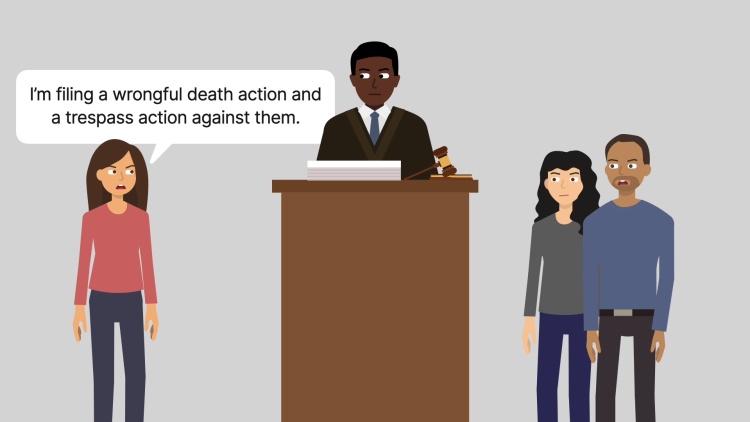Baker v. Shymkiv
Ohio Supreme Court
451 N.E.2d 811 (1983)
- Written by Craig Conway, LLM
Facts
As they were returning home for the evening, Homer Baker and his wife, Mary, (plaintiff) turned their vehicle into their driveway and saw neighbors John Shymkiv and his wife (defendants) throwing tools and other equipment into the trunk of their car. The Bakers exited their vehicle and saw that a ten-foot-long by nearly two-feet-deep trench had been dug across their driveway. The trench contained drain tile so that water from the Shymkiv property could drain through the trench and onto the property of an adjoining landowner. A visibly angry Homer approached John and began to yell at him. Mary got in between the two men and told Homer to calm down. Mary then left to call the police. When she returned three minutes later Mary found Homer lying face down and witnessed the Shymkivs driving away. Homer was later pronounced dead. As administratrix for the estate of Homer, Mary filed a wrongful death suit against the Shymkivs seeking damages for her own pecuniary loss and for compensatory and punitive damages for the Shymkivs’ trespass. At the close of the evidence the trial court instructed the jury that before liability could attach to the defendants the damages claimed by Mary must have been foreseen or reasonably anticipated as likely to follow the trespass and the digging of the trench. The jury held for the Shymkivs. Mary appealed. The court of appeals reversed and held that the trial court erred in allowing the jury instruction. The Ohio Supreme Court granted certiorari to review.
Rule of Law
Issue
Holding and Reasoning (Locher, J.)
What to do next…
Here's why 910,000 law students have relied on our case briefs:
- Written by law professors and practitioners, not other law students. 47,100 briefs, keyed to 997 casebooks. Top-notch customer support.
- The right amount of information, includes the facts, issues, rule of law, holding and reasoning, and any concurrences and dissents.
- Access in your classes, works on your mobile and tablet. Massive library of related video lessons and high quality multiple-choice questions.
- Easy to use, uniform format for every case brief. Written in plain English, not in legalese. Our briefs summarize and simplify; they don’t just repeat the court’s language.






